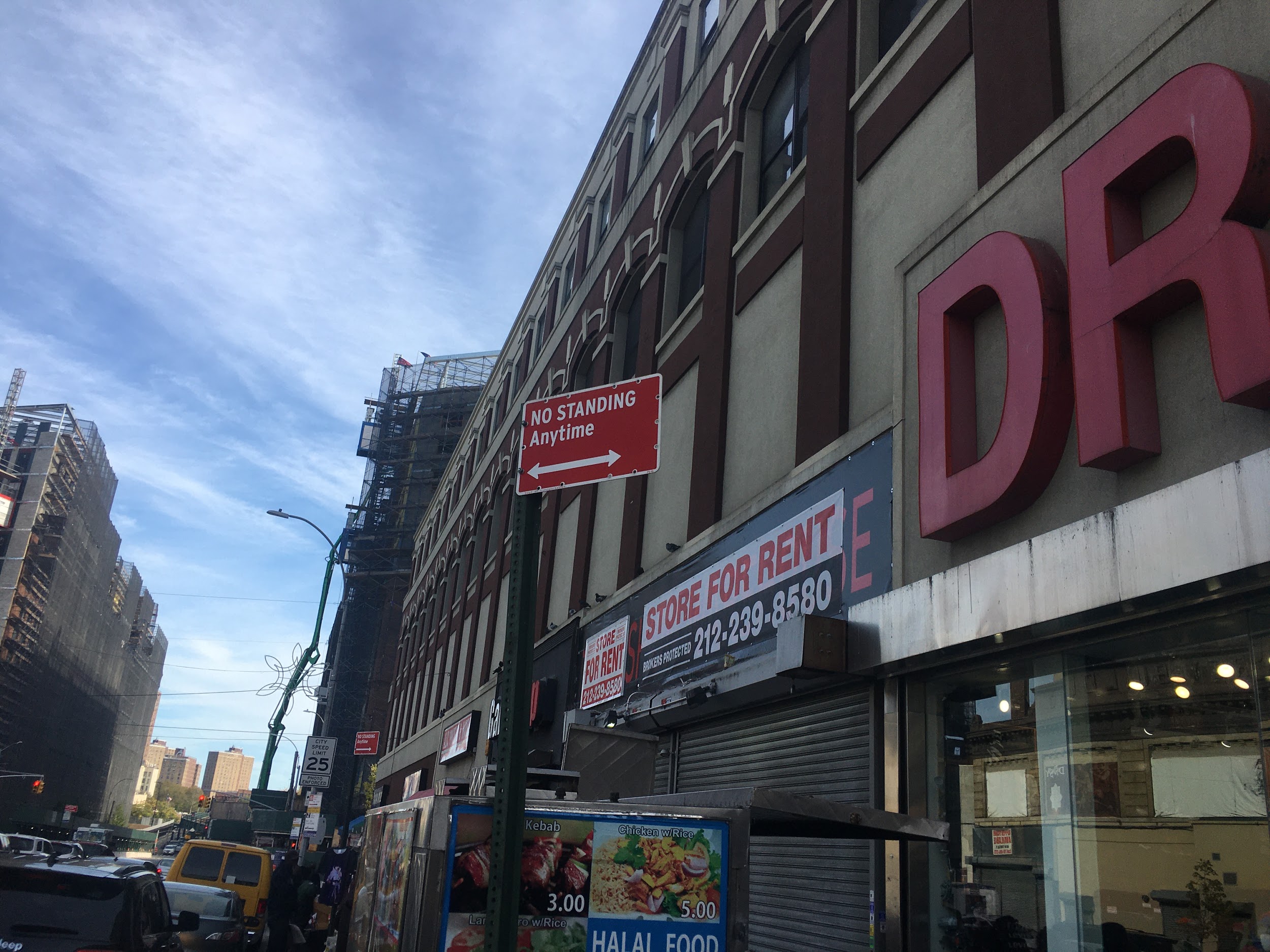The reportstates that wait times for Department of Building alterations are significantly higher in Mott Haven and other outer borough neighborhoods than in Manhattan, and that these wait times are strongly correlated to higher rates of retail vacancy.
“The share of Department of Buildings alteration permits unapproved after 30 days is a significant driver of retail vacancy. A one percent increase in this metric is associated with a 3.28 percent increase in vacant retail square footage,” the report claims.
The report profiles 24 neighborhoods citywide, some of which were selected as the result of recent press coverage or other analyses by city agencies. Others were selected based on the Comptroller’s review of data, especially high vacancy rates.
The report also ties expensive rents to rising property taxes. “Property taxes paid by retail tenants as part of their rent are also an increasing burden, doubling over the last ten years to over $2.2 billion in 2017, and accounting for a rising share of total retail rent burden,” it states.
But some Mott Haven business owners put the blame for vacancies squarely on greedy landlords who they say have little to lose by charging unfair rents.
“The landlords are bloodsuckers,” complained Mike Cohen, owner of Zodiac Jewelry on 149th Street.
According to Cohen, many of the area landlords have multiple buildings and do not mind letting a few of their retail spaces go empty for long periods. They would rather “write it (vacancy) off on their taxes” than to commit to a less desirable lease, he said.
Cohen scoffed at the notion that landlords are hurting under the weight of regulations and taxes. “That’s why they go around driving in Mercedes’ and Bentleys?” he said.
But Michael Brady, executive director of the Third Avenue Business Improvement District, disputes that landlords have anything to gain by letting their spaces stay vacant.
“Without a tenant, property owners – many of whom are small business owners themselves – must pay the taxes by themselves,” said Brady. “On Third Avenue, and in my experience in the South Bronx, property owners are not incentivized to do this.”
Brady dismissed the comptroller report’s contention that current regulations are contributing to the vacancy problem. “The Comptroller’s report did not use accurate data. This is a challenge we often have with that office,” he said. “(The Department of Buildings) in general, is fair about expediting alteration approvals.”
Brady has not returned requests for links to data he said he would provide a more accurate analysis of the vacancy issue.
Some city officials, including Mayor Bill de Blasio, have suggested imposing a vacancy tax on landlords who do not rent their space quickly enough.
But according to a spokeswoman for Comptroller Stringer, more taxes and penalties would not help alleviate the problem.
“We don’t believe that penalizing landlords who often are simply struggling to find tenants for their space is the best approach,” said Josiel Estrella, adding that the focus should instead be on alleviating tax burdens for store owners.
“We’d rather provide a tax incentive to businesses that want to rent retail space in high-vacancy corridors, to encourage them to use the space,” she said.

